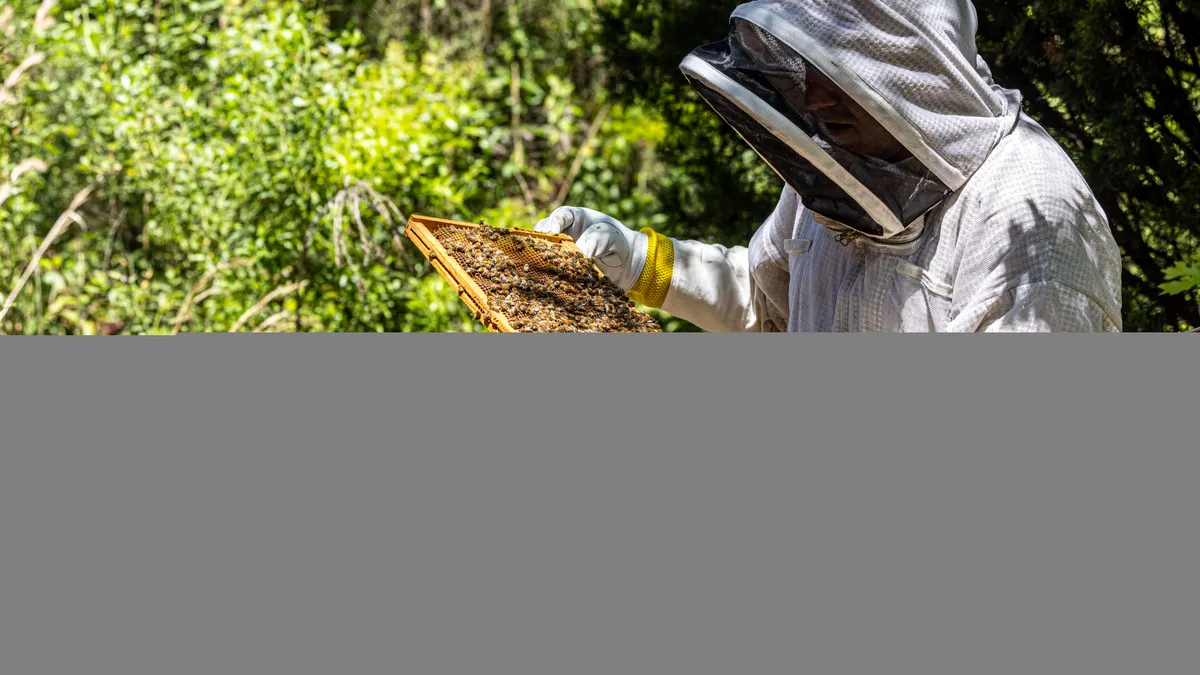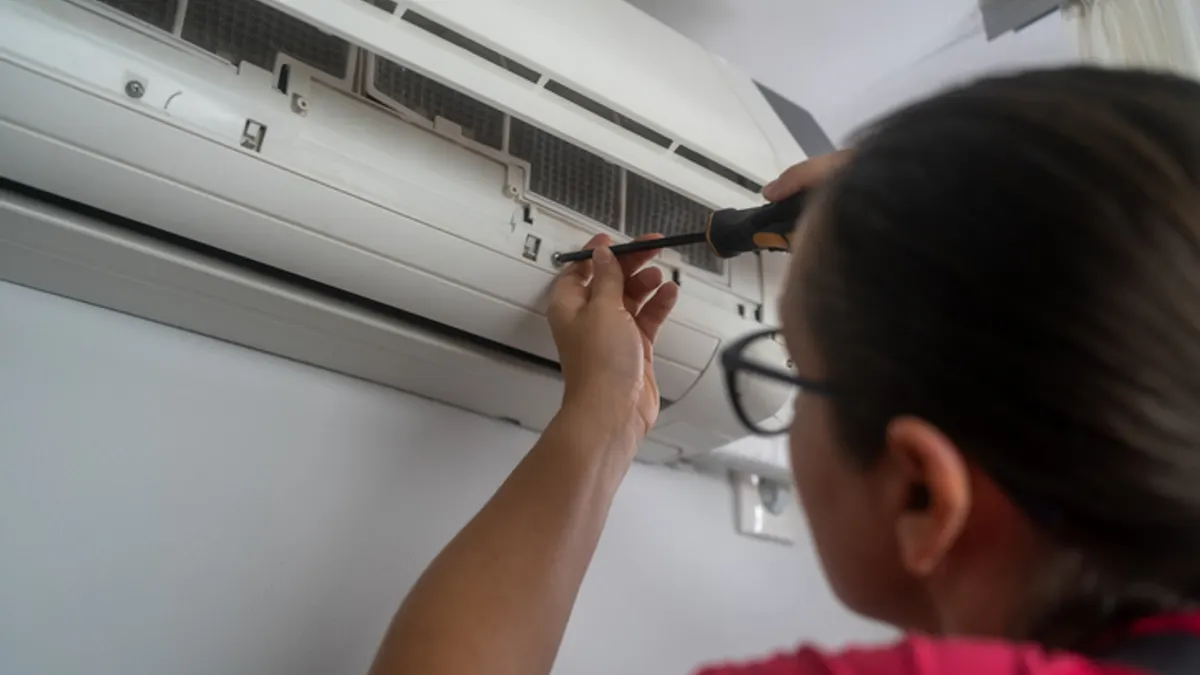Dive Brief:
- SPX Flow has set up two beehives at its corporate headquarters in Charlotte, North Carolina, as part of ongoing sustainability efforts at the facility, according to a press release.
- Facility manager Jennifer Honaker expects the beehive pollination project to produce honey next year, with the company noting that surplus honey will be sold on-site at the cafeteria's marketplace and used in worker meals.
- The project follows a number of on-site sustainability initiatives, including a food compost program and LED lighting upgrades, intended to benefit employees and attract environmentally-focused office tenants.
Dive Insight:
The project comes as facility-focused bee pollination projects receive more attention across the country, in part due to the U.S. General Services Administration’s Pollinator Protection Initiative. The data-driven pilot, which kicked off in spring 2022, introduced beehives to 11 locations across the U.S. The initiative found that many regions, while interested in hosting honeybees, ran into logistical hurdles.
SPX Flow says that by introducing the beehives it is actively contributing to green operations commitments, providing benefits to employees and attracting business partners by taking action to enhance the well-being of bees and promote ecological balance.
Honaker, who has been with the company since December 2014, says implementing these initiatives will help to attract commercial tenants to the building. She also noted that the company has vendors and customers who have expressed an intent to ensure sustainability across their supply chains.
“We are a multi-tenant building. As we’ve had floors and spaces come on the market, it is a question that we get a lot from people: ‘What sort of green initiatives do you have? What does your recycling program look like?’” Honaker said in an interview.
To that end, the organization has introduced numerous processes and upgrades at its headquarters, such as LED lighting, biodegradable utensils and food composting. While replacing lighting with LED fixtures is an expensive upfront investment, the return on investment accrues over time, generating energy cost savings, Honaker said.
These sustainability initiatives are also intended to benefit employees and, in fact, the ideas have usually come from workers at the headquarters. The beehive initiative originated with a contract Compass Group employee, who works at SPX Flow’s cafeteria.
“She came to us and said that her husband was a beekeeper, or apiarist, and was really interested in maybe setting up some hives at our building,” Honaker said. “We discussed it as a facilities team, and we were like, ‘Why not?’ Why wouldn’t we do it? We don’t have anything to lose.”
Honaker, who has been part of SPX Flow’s facilities management team since December 2014, said the facilities’ composting initiative began in 2017, when employees from Europe were surprised that there was no on-site composting. While there was no clear partner to enable it at that time, SPX Flow revisited the idea in 2019 and has since performed food composting through its partnership with Compass.
“It was really easy to set up and implement. More than anything, it was just a change of process,” Honaker said, noting that it costs only about $67 a week to compost, and that the material goes back to local farmers in exchange for fresh eggs and produce at the cafeteria.
“It’s not something that I would have thought would have been such a cool thing that people were really interested in. But people think that it’s a really great thing that we do, and it wasn’t really all that hard to implement.”
She added that going forward, the facility will continue to scout for new sustainability-focused projects. One potential future project, Honaker said, could involve introducing wildflowers or alternative landscaping techniques, which could help pollinators in the ecosystem and provide additional benefits to the property.
“We have flower beds, we have landscaping, and sometimes it may just be planting different flowers that help the environment, that help pollinators, that help erosion control and that require less water for your irrigation,” Honaker said.













